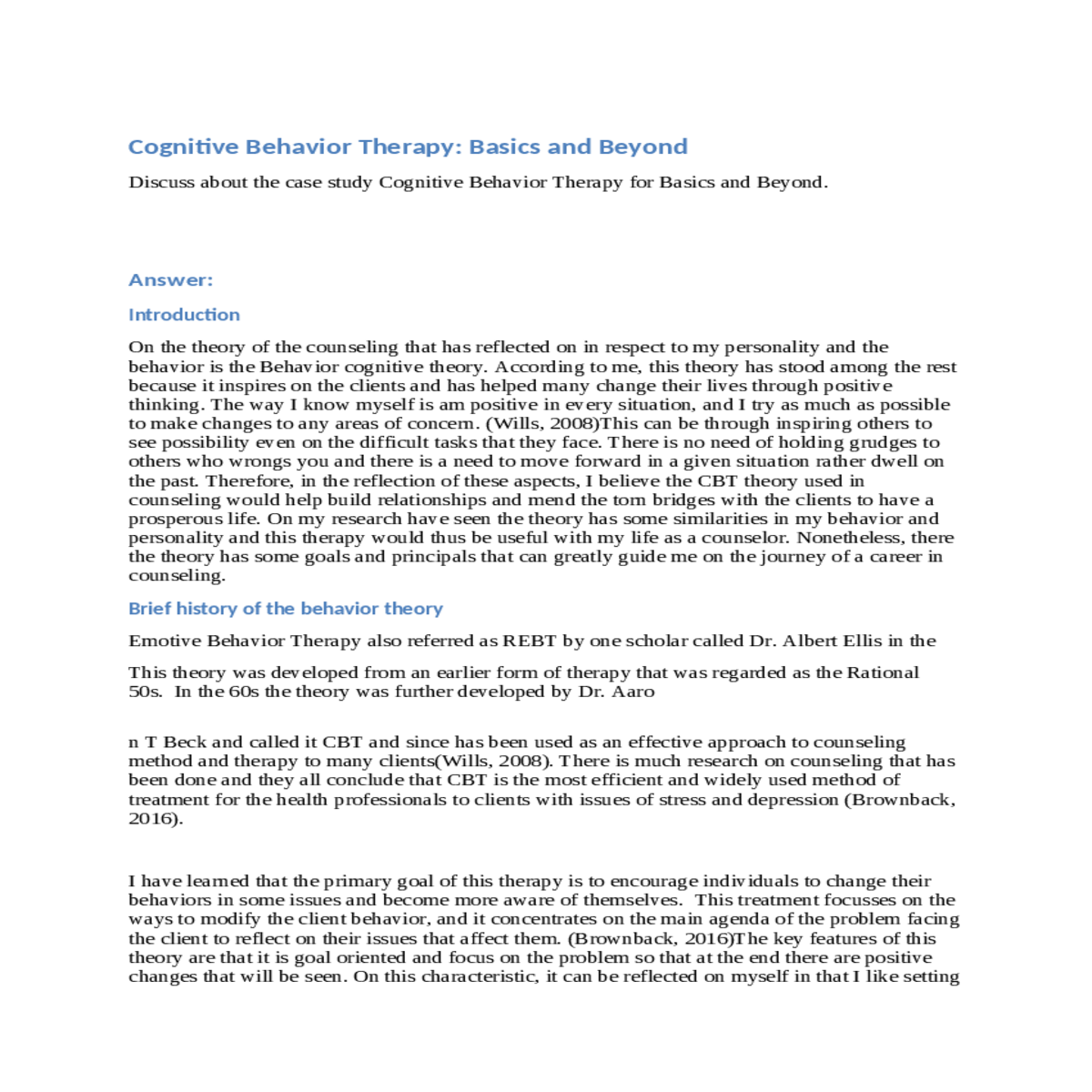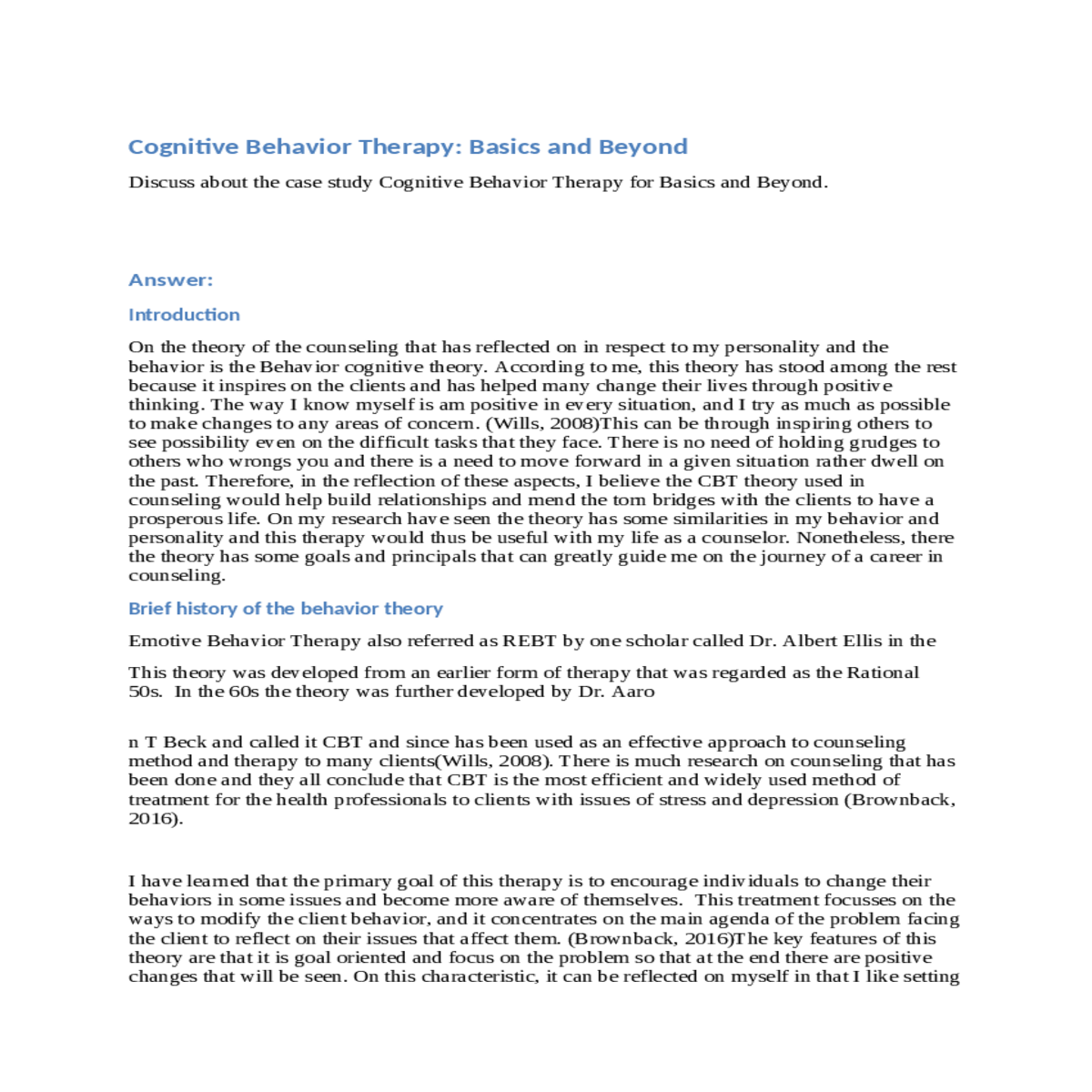Brief history of the behavior theory
Cognitive Behavior Therapy: Basics and Beyond
Discuss about the case study Cognitive Behavior Therapy for Basics and Beyond.
Answer:
Introduction
Brief history of the behavior theory
n T Beck and called it CBT and since has been used as an effective approach to counseling method and therapy to many clients(Wills, 2008). There is much research on counseling that has been done and they all conclude that CBT is the most efficient and widely used method of treatment for the health professionals to clients with issues of stress and depression (Brownback, 2016).
The CBT approach has been found to focus on the goals and the problem of the client. These aspects have been reflected in my personality most of the time. I believe every problem can be solved, and I always try to focus on fixing the problem that affects me through working around the problem. Some skills I realized I had them and were my firm hold on my personality when I studied this theory. The primary concern is to focus basing on the problem affecting the client and ways to resolving them to enable them to change their behavior positively.
The blending of this theory has allowed me to apply a therapeutic process in that it is comprehensive enough to be able to account for the complexities of the human behavior. (Hawton, Salkovskis, Kirk & Clark, 1989)This affects especially the various type of client and their particular problem consideration. It is imperative for the counselor to have a strong understanding of this theory of counseling and the therapeutic approach to have a strong base of their practice for the provision of the services and techniques to meet the needs of the clients. Nonetheless, it is significant for a counselor to integrate their personality, strengths and the areas of interest to help the client in the best possible way based on personal set skills. As a therapist, it is important to learn new techniques and strategies to apply to a particular framework of counseling.
I believe any therapy should be focused on encouraging success and looking forward to a hopeful future. The changes the clients makes in their life determines their success. Each person can grow and live a fruitful life if only you confront the things that are affecting you emotionally.
Conclusion
References
Beck, J. S. (2011). Cognitive behavior therapy: Basics and beyond. Guilford Press.
Fowler, D., Garety, P., & Kuipers, E. (1995). Cognitive behaviour therapy for psychosis: Theory and practice (Vol. 25). Wiley.
Wills, F. (2008). Assessment, formulation and beginning CBT. In Skills in cognitive behaviour counselling and psychotherapy (pp. 16–34). London, England: Sage Publications.





